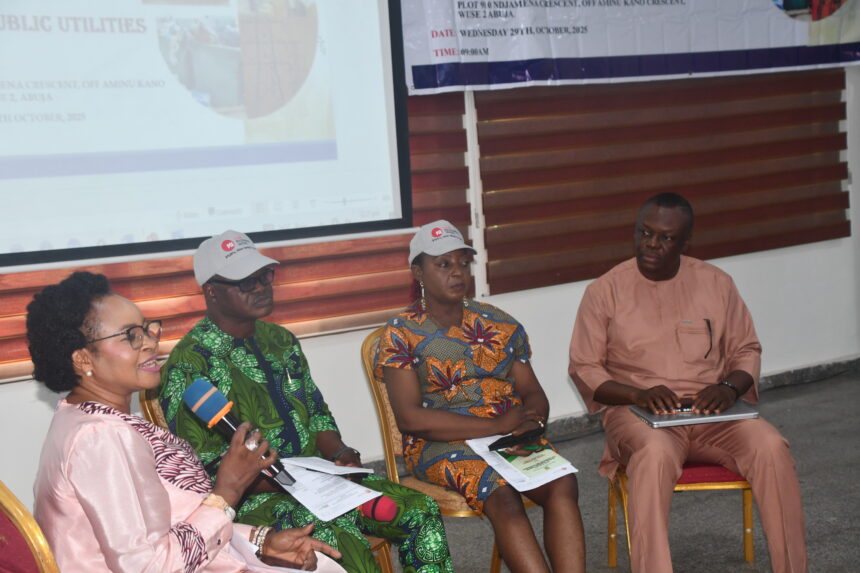Several stakeholders from across Sub-Saharan Africa convened in Abuja on Wednesday, October 29, 2025, issuing a call for an urgent reversal of privatization in public utility sectors like electricity, water, and waste services.
The demand was made during a National Public Utilities Summit, organized by Public Services International (PSI) and DGB Bildungswerk Bund (DGB BW).
During the summit, stakeholders concluded that privatization in public utility sectors has failed the public interest, leading to escalating costs, poor services, and rampant corruption, while championing the Public-Public Partnerships (PUPs) model as a sustainable, democratic, and just alternative.
This was also contained in a communique issued on Wednesday and made available to Pan-Atlantic Kompass.
The summit, which was held at the Denis Hotel, Abuja, was attended by officials of the Public Services International (PSI) and officials of the DGB Bildungswerk Bund (DGB BW).
The Nigerian trade unions present at the summit are the Amalgamated Union of Public Corporations, Civil Service, Technical and Recreational Services Employees (AUPCTRE) and the National Union of Electricity (NUEE).
The civil society was also represented during the summit through Philip Jakpor, Executive Director of Renevlyn Development Initiative (RDI), Comrade Leke Zambuk, representative of Citizens Free Services Forum (CFSF), and Comrade Vicky Urenma, Executive Director of Child Health Organisation.
Prof. Hosea Mande Mangu, delivering the keynote address titled “On the March Towards Public Sector Solutions,” advocated for an end to privatization in public utility sectors.
He also pointed specifically to the consequences of privatisation in Nigeria. Mangu observed that the unbundling of the electricity sector has neither increased power generation nor improved distribution.
The communique reads in part: “Following robust deliberations, the meeting made the following critical observations:
1. Privatisation has failed to serve the public interest. In Nigeria’s electricity sector, there has not been an increase in power generation or distribution. Instead, it has escalating tariffs and bands consumers according to economic status. In the water sector, it has shut off consumers, and in the waste sector, it has discouraged unionism.
2. Public revenues have been plundered. Monies that could have been invested in enhancing public services have been sunk into privatized entities that had claimed they would invest in the public utilities. For instance, the Nigerian government and international funders have ploughed over N2 trillion in bailout funds for the 11 Power distribution companies without a single megawatt added to the 12,500 megawatts obtained in 2013.
3. Privatisation has increased corruption and conflict of interest. Opaque contracts that did not go through due processes have allowed private individuals and companies to fleece Nigeria while holding onto public utilities. For instance, there is no verifiable information on the bond raised by Visionscape Solution Services which was given executive fiat for waste management in Lagos in 2017 until it was forced to suspend operations.
4. Workers in the water, electricity, and waste services sectors face precarious work conditions marked by low wages, wage arrears, job insecurity, casualisation, and absence of social protection (e.g., pensions and unemployment insurance). These deliberate policies continue to undermine workers’ morale, workers’ dignity, service quality, and community well-being.
5. Advocates of public sector solutions are largely ignorant of the workings of the Public-Public Partnership Model of managing public utilities, and few discussions are going on about the model.
“In response to the above realities, participants recommended the following:
1. Urgent reversal of the electricity sector and all existing privatisations in the water and waste sectors, and suspension of ongoing or planned discussions with the World Bank and other IFIs on the privatisation of public assets.
2. Adoption of Public-Public Partnerships (PUPs) as a sustainable, democratic, and just alternative. PUPs have shown proven success in delivering quality public services without profit motives.
3. Reinvest in human capital within the public sector. Governments must allocate sufficient resources for the training, motivation, and retention of public sector workers to promote efficiency, innovation, and transparency.
4. Strengthening social dialogue and collaboration among civil society, trade unions, and other crucial sectors that can hold government to account.
5. Put people before profit by halting the privatisation of essential services and reaffirming the public sector as the cornerstone of democratic development, equity, and sustainable livelihoods.
6. Need for the PSI-DGB to critically support education projects among workers on the Public-Public Partnership that is in its infancy in Nigeria.”
Pan-Atlantic Kompass reports also that the communique was officially endorsed by the Amalgamated Union of Public Corporations, Civil Service Technical and Recreational Services Employees (AUPCTRE); the National Union of Electricity Employees (NUEE); the Citizens Free Service Forum (CFSF); the Renevlyn Development Initiative (RDI); the Child Health Organisation, and the Union of Kenya Civil Servants (UKCS).





